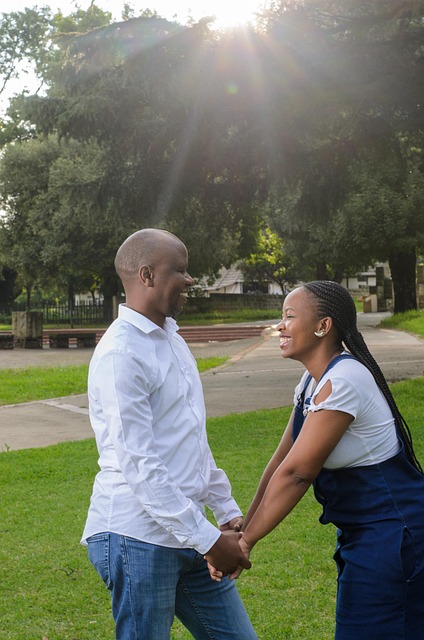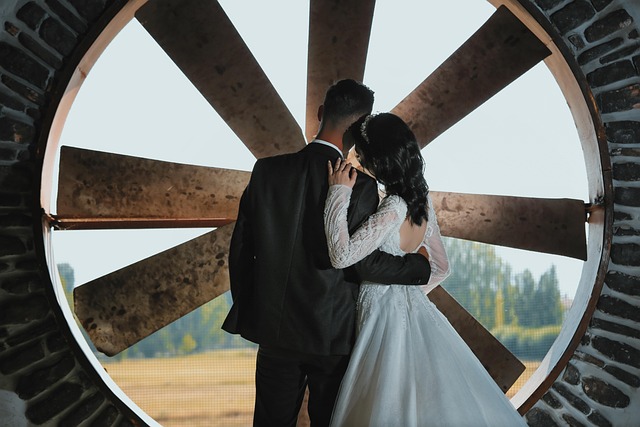Couples counseling is a specialized form of therapy designed to heal marital conflicts, rebuild relationships, and improve communication. It provides a safe space for partners to express feelings honestly, gain insights into relationship dynamics, identify unhealthy patterns, and develop strategies for healthier interaction. Through techniques like active listening, conflict resolution, reframing, and behavioral therapies, counselors help couples address core issues, rebuild trust, and enhance communication. Preparing for change, setting realistic expectations, and understanding the non-linear healing journey are crucial steps in the process. Couples counseling is proven effective in transforming strained relationships into thriving, lasting unions by strengthening bonds, fostering understanding, enhancing conflict resolution, and deepening commitment.
Understanding Reconciliation Counseling: A Path to Healing for Marriages

Reconciliation counseling is a specialized form of couples counseling designed to help married partners navigate through conflicts, heal from past hurts, and rebuild their relationship. This therapeutic process offers a path toward reconciliation, enabling spouses to communicate more effectively, address underlying issues, and foster mutual understanding. By creating a safe and supportive environment, counselors facilitate open dialogue, encouraging each partner to express their feelings and needs honestly.
Through various techniques tailored to the couple’s unique situation, reconciliation counseling helps partners gain insights into their relationship dynamics, identify unhealthy patterns, and develop strategies for healthier communication. It provides tools for managing anger, resolving conflicts constructively, and rebuilding trust. This process allows couples to reconnect emotionally, strengthen their bond, and rediscover the love and commitment that brought them together in the first place.
Common Issues in Marriage That Can Benefit from Couples Counseling

Many marriages face challenges that can be effectively addressed through couples counseling. Communication issues are a frequent hurdle; partners may struggle to express their needs, leading to misunderstandings and conflicts. This can stem from differences in communication styles or unaddressed underlying problems. Another common issue is lack of quality time together, often caused by busy schedules, work commitments, or parental responsibilities. As a result, couples may grow distant and lose the intimacy that once bound them.
Financial disagreements are also a significant challenge, with debates over spending, saving, or debt management creating tension. In some cases, past traumas or unhealed wounds from childhood can resurface, affecting how individuals interact in their current relationship. Infidelity is another complex issue that requires counseling to rebuild trust and strengthen the bond between partners. Couples counseling provides a safe space for these topics to be openly discussed and resolved, fostering better understanding and a deeper connection.
The Role of a Professional Counselor in Facilitating Reconciliation

In the journey towards reconciliation, a professional counselor plays an indispensable role in helping couples navigate their way back to each other. Couples counseling provides a safe, neutral space where emotions can be openly expressed without fear of judgment. The counselor acts as a guide, facilitating meaningful conversations and helping partners gain insights into each other’s perspectives. Through active listening and empathetic support, they create an environment that encourages vulnerability, fostering deeper understanding and compassion.
By employing various therapeutic techniques, such as conflict resolution strategies and emotional regulation skills, counselors enable couples to address underlying issues, rebuild trust, and strengthen their communication. They help partners learn how to navigate disagreements constructively, promoting healthy arguments that lead to growth rather than destructive ones. Ultimately, the counselor’s expertise lies in empowering couples to make necessary changes, allowing them to move forward with renewed commitment and a deeper appreciation for one another.
Techniques and Strategies Used in Effective Couples Counseling

Effective couples counseling involves a range of techniques and strategies designed to help married pairs navigate their challenges and strengthen their bond. One common approach is active listening, where counselors create a safe space for each partner to express their feelings and perspectives without judgment. This fosters understanding and empathy, laying the foundation for meaningful communication. Counselors also utilize tools like conflict resolution techniques, helping couples identify underlying issues and develop healthy ways to disagree and resolve disputes constructively.
Another powerful strategy is reframing, where counselors assist partners in viewing their differences as opportunities for growth rather than sources of conflict. This shift in perspective encourages collaboration and compromises, fostering a more positive dynamic. Additionally, exposure therapy for anxiety-related issues, mindfulness practices for present-moment awareness, and behavior activation techniques to reignite shared passions are also employed. These methods aim to address individual needs while promoting collective well-being, ultimately paving the way for lasting reconciliation in marriages.
Preparing for Change: Setting Realistic Expectations for Reconciliation

Preparing for change is a vital step in the reconciliation process. Couples counseling often begins with setting realistic expectations, understanding that healing and restoration take time. This phase allows partners to confront their fears, hopes, and doubts openly. Through guided communication, they learn to navigate sensitive topics, manage expectations, and set achievable goals.
In couples counseling, it’s crucial to acknowledge that reconciliation is not a linear path; it involves setbacks and fluctuations. By setting realistic expectations, partners can avoid disappointment and stay motivated during the healing journey. This includes understanding that change might look different for each individual, and personal growth may occur at varying rates, fostering an environment of patience and mutual support.
Long-term Success Stories: How Couples Counseling Transforms Marriages

In the realm of marriage counseling, success stories are abundant among couples who have embarked on the journey of reconciliation through professional guidance. Couples counseling serves as a powerful tool in transforming strained relationships into thriving, lasting unions. Many long-term success stories attest to the effectiveness of this approach.
By participating in structured sessions with a trained counselor, couples learn valuable communication skills, gain insights into underlying issues, and rediscover the foundations of their love. These conversations facilitate open dialogue, allowing partners to express their deepest fears and desires without judgment. Over time, this process strengthens their bond, fosters mutual understanding, and paves the way for personal growth. The transformation is often remarkable, with couples reporting improved intimacy, increased conflict resolution skills, and a renewed sense of commitment that deepens their connection.
